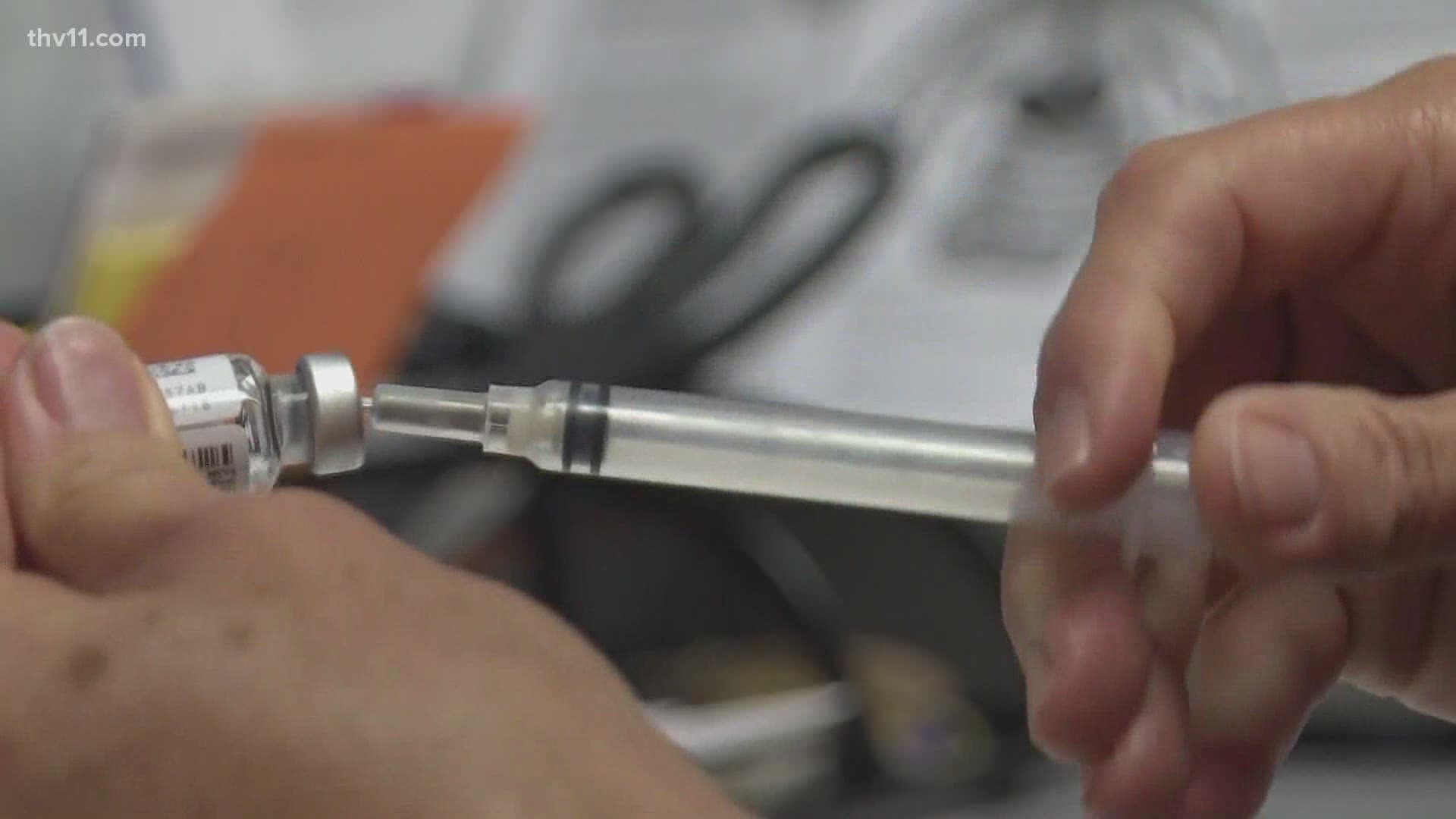LITTLE ROCK, Ark. — With people spending more time at home, many Arkansas are behind on vital vaccinations.
This leaves top health officials, like Dr. Jennifer Dillaha with the Arkansas Department of Health, worried about this upcoming flu season.
"Immunizations, vaccines are safe. They're among the safest pharmaceuticals out there," she said.
That's a message Dillaha wants to remind everyone about, now more than ever.
"We know that in the last few months since the pandemic has been ongoing in Arkansas, that we have seen a decline in the number of doses for adult vaccinations," she said.
According to department of health data, in April, vaccinations for adults 19 and older fell by more than half.
Dillaha said that drop continued for the month of May.
"It could be that pharmacies are so busy they're not reporting them, but I think that mostly it's because people have not been getting vaccinated during that time period," she said.
Dillaha believes this decline could be linked to more telemedicine visits or pharmacies offering curbside and delivery.
This drop includes the most common vaccines for adults like flu, measles, hepatitis A and B, and shingles.
But Dillaha said her main concern is the flu shot, especially mixed with COVID-19.
"If we can keep those people out of the hospital through influenza vaccination, then that's less pressure on the hospital system that will occur," she said.
During this time of a pandemic though, how will people get this vaccination when shot clinics don't exist and people may not be able to get them at work or school?
Dillaha said the Arkansas Department of Health has a plan in the making.
"We are working with our local health units around the state to plan for drive-thru vaccination clinics, so people can drive up, get their shot, don't have to get out of their car, and then be on their way," she said.
Dillaha hopes with this system they will be able to vaccinate just as many people, if not more than they have in the years past.
"We want to make sure that it's administered in a way that protects people from exposure to COVID-19," she said.
Dr. Dillaha encourages people to talk to their local pharmacists and doctors to get caught up on their recommended vaccines, so they can keep themselves and their loved ones safe.

